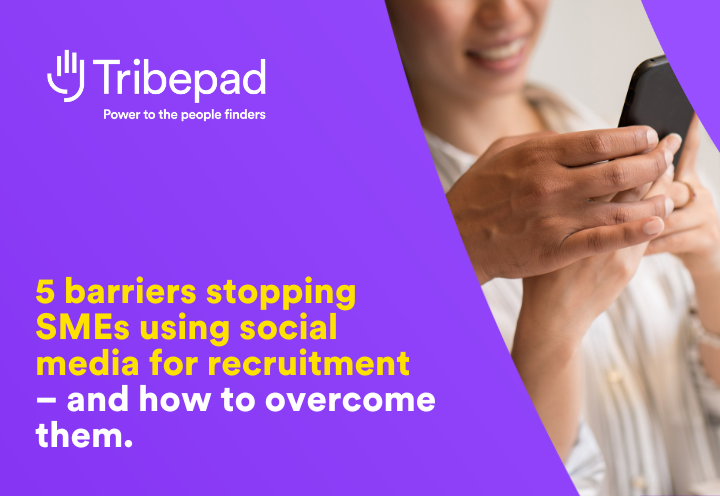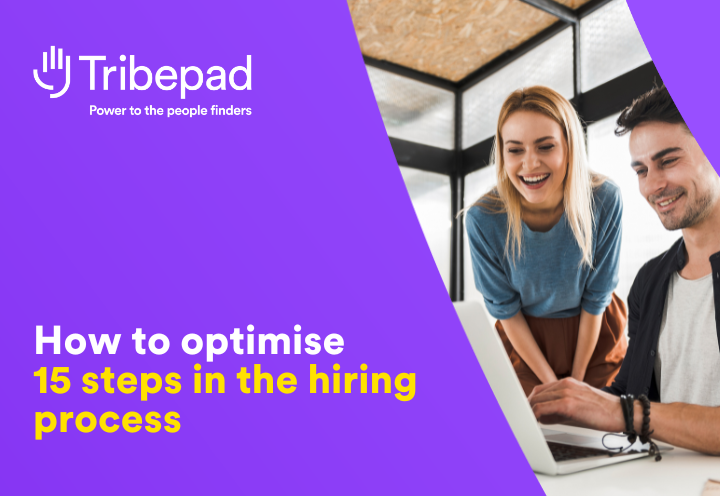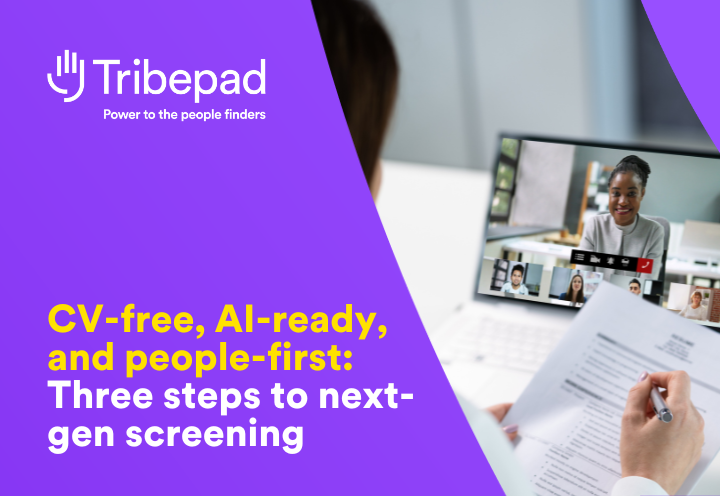Data driven recruitment isn’t just for large enterprises with huge budgets and all the jazzy analytics tools. But many SME recruiters still aren’t great with recruitment data. Here are seven reasons to start growing those data skills, to build a fairer, faster, better hiring function.
Data hasn’t always been a priority for small business recruiters.
Business leaders often haven’t been asking for data, firstly, so it’s not been a priority. And you’ve already got so much on your plate that taking the lead to generate data that nobody’s asking for can feel like unnecessary extra work.
Plus, recruiters’ data literacy has historically been pretty low. Especially if you’re the only (or one of the only) recruiters for your organisation, it’s not a skill you’ve probably needed to flex much.
And small business recruiters often come from an agency background where you’ve neither needed nor had access to deep-dive data into the recruitment process.
Lots of reasons that SMEs have often leant more on intuition than data for hiring.
But the problem is, how long is this sustainable for?
An effective, efficient recruitment function is the lynchpin of business success — and it’s almost impossible to build an effective, efficient recruitment function without a great grasp of your recruitment data.
Keep reading for seven great reasons small business recruiters need to get to grips with data driven recruitment. Or watch the webinar now to hear Recruiting Brainfood’s Hung Lee and guests discuss data driven decision-making in SMEs:
7 reasons SMEs need data driven recruitment
1 – Better recruitment data means better decisions
The most obvious reason to embrace data driven recruitment is to improve the quality of hiring decisions.
Stats show that gut feel is still the most common deciding factor for hiring, ahead of experience, interview performance, or qualifications. That’s a recipe for unfair, ineffective recruitment that doesn’t reliably deliver good outcomes.
For SMEs, where every hire is super important, that can spell disaster. Fast.
Using data means making fact-based hiring decisions, not intuition-based decisions. Ultimately that means you’re more likely to hire the right people – people who’re more productive, engaged, and loyal for the long-haul.
2 – Data is the foundation for better stakeholder management
Better recruitment data isn’t just about making better recruitment decisions. Gita Selli, Senior Manager of Global Talent Acquisition with Loadsmart, points out that better data is critical to help prove recruiters’ value:
“Recruitment is always the first to have people or technology cut. Data is even more important, because to fight for your team you need data. You need to show: why do we need so many recruiters? How are we adding value to the business?”
Data empowers recruiters to negotiate more effectively internally, to show stakeholders why recruitment’s valuable.
Especially for smaller organisations that mightn’t have had an established recruitment function for long, this can be critical. Your senior leaders might have very little idea what recruitment actually does, let alone why it’s so important.
Using data can help safeguard roles and even bolster your business case for investment into recruitment tech, to help you continue delivering value.
3 – Data is critical to secure capital investment
Talent leader Akbar Karenga has helped 50+ start-ups on their journey to scale, and he observes how recruitment data is an instrumental part of the funding puzzle:
“Investors are assessing your go-to-market plan, and that’s tied to your recruitment plan. Can you hire the people you say, where you say, when you say, at cost?”
This relies on having reliable recruitment data. If you recruit for a start-up that’s trying to raise money through capital investment, getting better data should be a major priority. Especially in the last 18-months, as funding has become much harder to secure.
4 – Data helps you improve candidate and manager experience
Hannah Neuser, Head of People and Culture for Arethia, points out that better recruitment data isn’t only about improving hard recruitment outcomes, but about making life better for candidates and hiring managers.
Read more: 7 real-world tactics to improve candidate experience
When you have good data across your end-to-end hiring process, you can understand your sticking points and continually make tweaks to improve recruitment for everyone.
- What slows managers down?
- Where do candidates drop-off?
- Which moments do candidates hate?
- Where are managers getting frustrated?
That’s super important for SMEs. First, because when you lack big-brand allure, a great candidate experience can play a huge part in convincing candidates to choose you.
And second, because when your recruitment team is tiny, you need managers on-side or recruitment will stall. Poor hiring manager practice is one of the biggest challenges growing businesses face.
5 – Data is key to improving ED&I
Improving representation is a major priority for most organisations, and you simply can’t get there without better recruitment data. “ED&I is an extremely data-centric priority”, Hung says.
(In one recent survey, almost 80% of respondents acknowledged that ED&I was “very important” to the overall business strategy. The FT highlights that better recruitment reporting is crucial to help meet diversity goals.)
Aside from all the great business (and ethical!) reasons to improve diversity, there’s also a compliance implication. Many organisations are starting to be assessed on the diversity of their pipelines, from internally and externally.
Increasingly, if you want to meet internal goals or raise funding you’ll need to prove you’re moving the needle on diversity. If that’s not true right now, it’s likely to become true. Arming yourself with the data now is future-proofing.
6 – Recruitment data helps cut costs
Small business recruiters are inevitably pushed for money. There’s almost always too much to do, and too little budget to do it. Especially if you’re starting to scale past the 100-ish people mark, where growing becomes increasingly difficult and expensive.
Having better recruitment data means shining a light on hiring, so you can make better decisions about where to spend and save money. Data shows you:
- Where your inefficiencies are, so you can streamline them
- Which channels and processes are working best, so you can repeat them
- Which channels and processes aren’t working, so you can remove them
Ultimately, that means saving money on the stuff that’s not driving value. So you have more budget for the bits that will. Like lost-cost employer branding, for example.
7 – Data literacy is critical to your own marketability
It’s a tough market for talent professionals out there, Hung points out, and “the marketability of any recruiter is intimately tied to your data skills.”
The fact is, if you ever switch jobs almost every role will expect you to have great data skills.
It might sound slightly self-serving but if you’re currently in a role where you can develop these skills, that’s a great place to learn. Rather than when you’re interviewing in a tough jobs market. Win for the business, win for your career.
Better recruitment data takes hiring to the next level
Data driven recruitment isn’t just for big teams with large budgets and impressive tools. Maybe a few years ago, that was the case. But not today.
In today’s recruitment environment, good hiring is getting harder. Great recruitment teams support business growth by building a reliable, consistent mechanism to hire the right people.
That’s impossible without getting to grips with your recruitment data. SME recruiters can make themselves invaluable to the organisation by learning how to collect, analyse, and act on the facts, not just on intuition.
Ready to start taking control over your recruitment data? Read this article for 8 expert tips to get started – even if you’re starting from scratch and don’t know your columns from your rows.
Tribepad Gro is ready built, ready-to-go recruitment software for growing teams. Take your recruitment to the next level with tech that’s the complete package, from attraction to onboarding and reporting.




